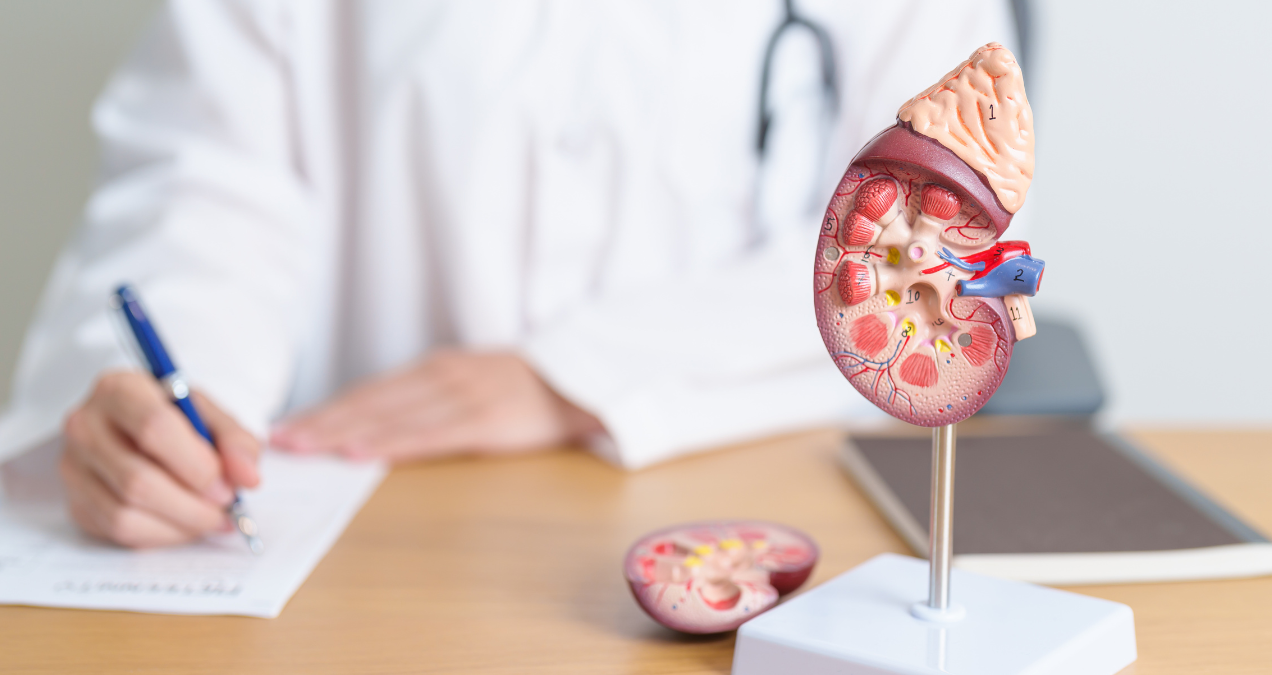
Understanding the Types of Kidney Problems: Causes, Symptoms, and Treatment
The kidneys play a crucial role in filtering waste products and maintaining the body’s balance of fluids and electrolytes. However, various kidney problems can disrupt this balance, leading to serious health concerns. This blog explores six common types of kidney problems, their symptoms, causes, and treatment options.
1. Nephrotic Syndrome
Nephrotic syndrome is a condition characterized by:
- Symptoms: Swelling of the face, feet, and puffiness around the eyes due to the loss of protein in urine.
- Cause: Damage to the tiny blood vessels in the kidneys, which leads to protein leakage.
- Treatment:
- Medications such as corticosteroids or immunosuppressants to control the underlying cause.
- A low-sodium and high-protein diet to reduce swelling and compensate for protein loss.
- Diuretics to manage fluid retention.
Early detection and treatment can help prevent complications such as blood clots or kidney failure.
2. Glomerulonephritis
Glomerulonephritis refers to a group of diseases causing inflammation and damage to the kidney’s filtering units, called nephrons.
-
Symptoms:
- Blood in urine (hematuria).
- Foamy urine due to protein leakage.
- High blood pressure and swelling in the legs or face.
-
Causes:
- Autoimmune diseases, infections, or genetic conditions.
-
Treatment:
- Immunosuppressants for autoimmune-related inflammation.
- Antibiotics for infection-induced glomerulonephritis.
- Lifestyle modifications such as reducing salt intake and managing blood pressure.
Timely intervention can restore kidney function and prevent progression to chronic kidney disease.
3. Chronic Kidney Disease (CKD)
CKD is a slow, progressive decline in kidney function over months or years.
-
Symptoms:
- Fatigue, nausea, and loss of appetite.
- Swelling in the ankles, legs, or hands.
- Increased frequency of urination, particularly at night.
-
Causes:
- Diabetes, high blood pressure, or prolonged use of nephrotoxic medications.
- Genetic predisposition.
-
Treatment:
- Managing underlying conditions like diabetes or hypertension.
- Dietary modifications, including reduced salt, potassium, and protein intake.
- Dialysis or kidney transplant in advanced stages.
Regular checkups with a kidney doctor in Gurgaon can help in early detection and management of CKD.
4. Acute Kidney Injury (AKI)
AKI refers to a sudden decrease in kidney function.
-
Symptoms:
- Sudden swelling, fatigue, or shortness of breath.
- Decreased urine output.
-
Causes:
- Severe infections, medications, or urinary tract obstructions.
- Reduced blood flow to the kidneys due to dehydration or heart failure.
-
Treatment:
- Addressing the underlying cause, such as stopping nephrotoxic drugs.
- Ensuring proper hydration and blood pressure support.
- Temporary dialysis to manage severe cases.
Prompt medical attention is crucial to prevent long-term kidney damage.
5. Inherited Kidney Diseases
Inherited kidney diseases are passed down through families, the most common being Polycystic Kidney Disease (PKD).
-
Symptoms:
- Pain in the back or sides.
- Frequent kidney infections.
- High blood pressure and progressive kidney failure in severe cases.
-
Causes: Genetic mutations leading to fluid-filled cysts in the kidneys.
-
Treatment:
- Managing high blood pressure with medications.
- Regular monitoring to detect cyst growth and kidney function decline.
- Dialysis or kidney transplant in advanced stages.
Genetic counseling is recommended for families with a history of PKD.
6. Renal Calculus Disease (Kidney Stones)
Kidney stones are hard mineral deposits that form in the kidneys and can obstruct the urinary tract.
-
Symptoms:
- Severe pain in the back, side, or lower abdomen.
- Blood in urine and frequent urination.
- Nausea and vomiting.
-
Causes:
- Dehydration or dietary factors leading to high levels of minerals in the urine.
- Untreated urinary tract infections or obstruction.
-
Treatment:
- Increased fluid intake to help pass small stones.
- Medications to manage pain and dissolve certain types of stones.
- Surgical interventions such as lithotripsy or ureteroscopy for larger stones.
Preventive measures include staying hydrated and maintaining a balanced diet to reduce the risk of recurrent kidney stones.
Conclusion
The kidneys are vital organs, and maintaining their health is essential for overall well-being. Regular checkups and early intervention can help manage these kidney problems effectively.
If you or a loved one is experiencing symptoms related to kidney problems, consulting the best nephrologist in Gurgaon, Dr. Shashidhar Shree Niwas at Kidney Clinic Gurgaon, is your first step toward better health. With over 25 years of experience, Dr. Shashidhar offers expert care and advanced kidney diseases treatment in Gurgaon, ensuring the best outcomes for patients.
Take charge of your kidney health today. Book your consultation with a trusted kidney doctor in Gurgaon and protect your kidneys for a healthier tomorrow.
